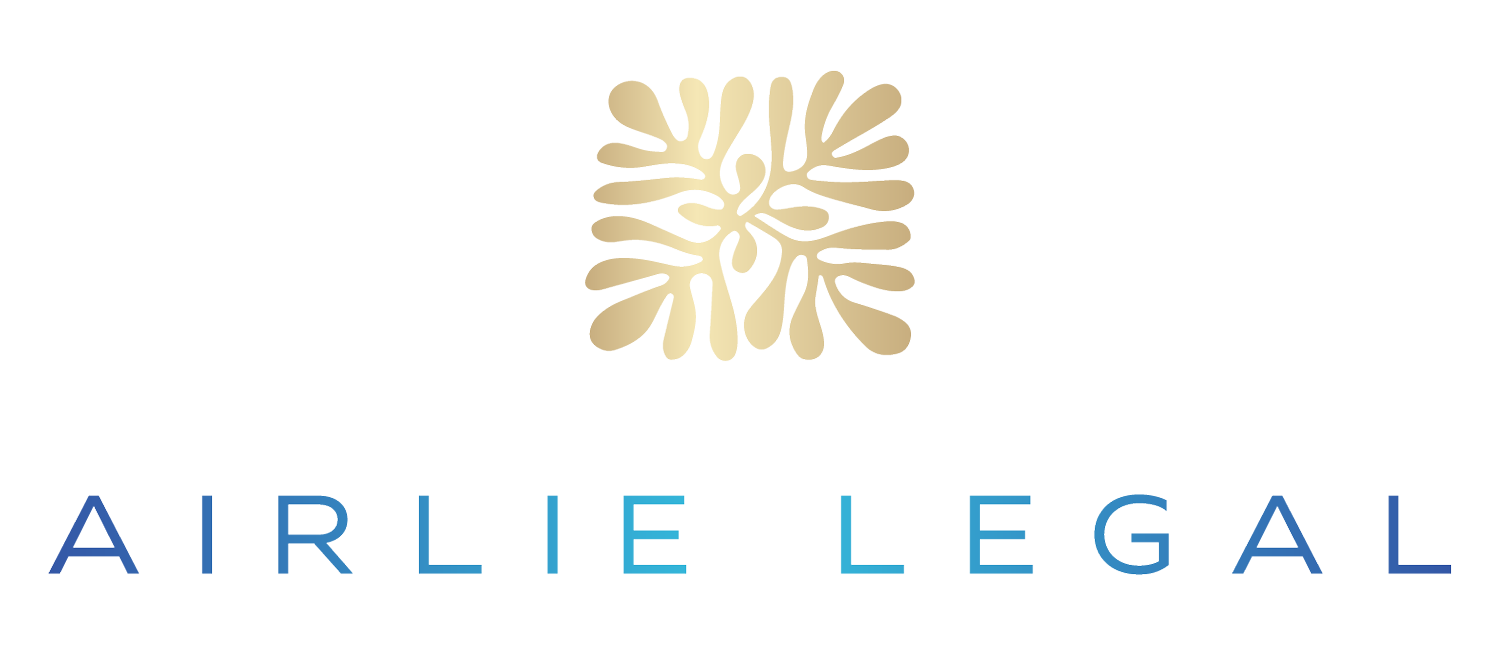Call Seda
New Seller Disclosure Statement QLD Rules in 2025: What Sellers Need to Know
From 1 August 2025, Queensland’s property landscape will undergo a major shift with the commencement of the Property Law Act 2023 (Qld). This legislation introduces a new, mandatory seller disclosure statement regime in Quneesland that aligns the state with broader Australian standards.
Whether you're a seller, buyer, agent or solicitor, it's important to understand the new rules. What was once considered good practice is now a legal obligation.
In this article, Airlie Legal explores the following:
- What a disclosure statement is in QLD
- The disclosure requirements under the new regime
- The role of the section 206 disclosure statement
- Exceptions, consequences for non-compliance, and best practice tips
We’ve unpacked the key changes so you can understand exactly what’s now required when selling property.
What Is a Seller Disclosure Statement in QLD?
A seller disclosure statement in Queensland is a legal document that must be provided by a property seller to a potential buyer before the buyer signs a contract. It includes detailed information about the property’s title, encumbrances, zoning, notices, and other factors that may influence the buyer's decision to proceed with the transaction.
This process is part of a broader seller disclosure regime introduced under the Property Law Act 2023 (Qld). It replaces the long-standing “buyer beware” model that left most of the investigation up to the buyer. Under the old approach, buyers were expected to carry out their own due diligence, often without access to complete or consistent information from the seller.
Under the new law, the seller must provide a completed and signed Form 2 Disclosure Statement together with prescribed certificates and information, collectively referred to as the disclosure documents. These documents set out key property details, such as title information, encumbrances, zoning, and notices, giving the buyer a clearer view of what they’re purchasing, promoting transparency and reducing the likelihood of disputes.
What Are the Requirements for the New Seller Disclosure Scheme in QLD?
The seller disclosure regime applies to contracts for the sale of freehold land entered into on or after 1 August 2025. It covers residential and commercial property transactions, including those involving lots in community title schemes. However, some limited exemptions do apply (see later section).
To comply with the law, sellers must provide three main components to the buyer:
1. Form 2 Seller Disclosure Statement
The Form 2 is the central document. It must be in the approved format and signed by the seller or their authorised agent. It includes:
- The name of the seller
- Legal description and address of the property
- Information about encumbrances (registered, unregistered, statutory)
- Zoning information
- Neighbourhood disputes
- Details of any residential tenancy agreements
- Notices of intention to resume or compulsory acquisition
- Whether the property has a pool and the current status of pool safety certification
If this statement is not provided, incomplete, or inaccurate, the buyer may be entitled to terminate the contract, potentially up until settlement.
2. Prescribed Certificates
These must accompany or be provided with the disclosure statement and include:
- Current title search
- Registered plan
- Contaminated land search
- Pool safety certificate or notice
- Show cause or enforcement notices (under the Building Act or Planning Act)
- Notices or orders requiring work to be completed
- Owner builder notice (for unlicensed work within the past six years)
- Tenancy agreement (if applicable)
- Rates and water notices
- Body Corporate Certificate (for lots in a community title scheme or BUGTA scheme)
These documents don’t need to be physically attached to the disclosure statement, but they must be given before the buyer signs the contract. Electronic delivery (e.g. via email or a link) is acceptable, provided the buyer consents (which can be implied).
3. Prescribed Information

The prescribed information is a list of key data points that must be disclosed in Form 2, such as:
- Statutory encumbrances (e.g. infrastructure easements)
- Dial Before You Dig results or similar
- Heritage register listings
- QCAT neighbourhood dispute records
- Transport and Main Roads search results
In essence, this gives the buyer insight into what’s happening around or underneath the land, not just what’s built on top of it.
What Is a Section 206 Disclosure Statement in QLD?
Before the introduction of the new seller disclosure regime, sellers of lots in community title schemes in Queensland were required to provide a section 206 disclosure statement under the Body Corporate and Community Management Act 1997 (Qld).
This statement included:
- Details about the body corporate
- Contributions payable by the owner
- Improvements to common property
- Insurance information
From 1 August 2025, this obligation is being replaced by the requirement to provide a Body Corporate Certificate in the approved format. The Body Corporate Certificate is now part of the prescribed certificates under the new seller disclosure statement framework and must be obtained from the relevant body corporate or strata manager.
The updated certificate is more comprehensive than the former section 206 disclosure, forming an important part of the seller disclosure obligations. It offers clearer, more consistent information to buyers and reduces the need for supplementary enquiries.
What Happens If the Disclosure Statement Is Not Compliant?
The consequences for non-compliance are serious and cannot be ignored. Depending on the nature of the issue, a buyer may have a right to terminate the contract.
Grounds for Termination:
- Failure to provide the disclosure statement or prescribed certificates before contract signing: The buyer may terminate, regardless of whether the missing information is material.
- Material inaccuracy or omission: If the information provided is inaccurate or incomplete in a way that materially affects the property, and the buyer was unaware of the issue and would not have proceeded if they had known, they may also terminate.
This makes it absolutely important for sellers and agents to treat the preparation of disclosure documents with care. Under the new seller disclosure scheme, even the simplest administrative oversight or inaccurate or incomplete information could potentially cost a sale.
Who Can Prepare & Sign the Seller Disclosure Statement?
Under section 97 of the Property Law Act 2023, the disclosure statement may be signed:
- By the seller,
- Or by an authorised agent (including a solicitor or real estate agent).
While agents are legally permitted to prepare and deliver the documents, Airlie Legal strongly recommends having a solicitor handle this process to reduce the risk of error. Titles, planning restrictions, and regulatory notices can be deceptively complex, and getting them wrong could mean delays, disputes, or even a terminated contract.
Minimise Risk & Stress with Help from Airlie Legal
At Airlie Legal, we work closely with sellers to remove the guesswork from disclosure. Our Airlie Beach property lawyers will review all required documents, advise on any potential red flags, and ensure the statement and accompanying certificates are not only complete, but also up to date and legally sound. If your property has unique features, such as unregistered easements, prior building work, or tenancy agreements, we can help you handle these correctly to reduce your exposure to legal risk and keep your sale on track.
When & How Must the Disclosure Be Given?
The timing of delivery is strict: under the seller disclosure scheme, the required documents must be given before the buyer (or first buyer, in the case of multiple purchasers) signs the contract.
Sellers or their agents can provide the documents:
- By hand
- By post
- By email
- Through an electronic link (e.g. via a secure portal)
It is the seller’s responsibility to prove that the disclosure was received before contract signing. As such, clear and proper record-keeping is crucial, particularly for real estate agents.
Are There Any Exceptions to the New Seller Disclosure Statement Regime in Queensland?
Yes, there are limited scenarios where the disclosure obligations do not apply. These include:
- Off-the-plan contracts
- Sales of leasehold land
- Transfers without monetary consideration (e.g. gifts)
- Transfers due to court orders or family law agreements
- Sales to government bodies or a local government entity
- Where the contract gives effect to the exercise of an option, and prior disclosure has been made
- Where the purchase price is $10 million or more, and the buyer signs a waiver
These exceptions are narrow and specific. Most standard residential and commercial property sales will fall under the new regime.
What Are the Risks for Sellers?
This change increases the legal and financial burden on sellers in Queensland. Risks include:
- Contract terminations due to mistakes or delays
- Increased costs for required property searches (which can range from $200–$300 or more)
- Delays while waiting for documents from councils, government departments, or body corporates
- Disputes around who is responsible for inaccurate or outdated information
To mitigate these risks, sellers should engage professionals early and keep all documentation up to date.
Airlie Legal can help manage these risks by preparing accurate disclosure statements, advising on timing, and handling property matters considered complex or unusual.
Seller Disclosure for Auctions in QLD
If a property is being sold at auction, sellers are still required to provide the full disclosure documentation. Here’s how it works:
- All registered bidders must receive the disclosure documents before the auction begins.
- If someone registers after the auction starts, they must be given access to the documents, either in person or via electronic link, during the auction.
- If the auction is online, the link to the disclosure must be available within the digital platform throughout the auction process.
This means auction documentation should be prepared and ready well in advance to avoid breaching the rules.
How Sellers Can Prepare
Selling property in Queensland now requires more planning, especially with the introduction of the new seller disclosure scheme under recent property law reforms. To prepare, sellers should:
- Compile copies of any unregistered encumbrances (e.g. tenancy agreements, access rights)
- Gather the most recent council rates and water bills
- Check for any outstanding notices from government bodies
- Ensure pool certification is up to date (if applicable)
- Apply for the ATO Clearance Certificate (for foreign resident withholding)
- Engage a solicitor early to manage the disclosure process efficiently
The team at Airlie Legal is available to assist sellers with compiling, reviewing, and delivering compliant disclosure documents.
Final Thoughts: Embracing Transparency
The new Queensland seller disclosure regime, introduced under the Property Law Act 2023, marks a clear shift away from the old buyer-beware model, placing greater responsibility on sellers to provide upfront, accurate information. It helps level the playing field in property transactions and gives buyers a more complete understanding of the property.
But with these benefits come increased responsibility and legal risk. Sellers who act early and seek legal advice will be best placed to manage these obligations without any delays.
For assistance in preparing a compliant seller disclosure statement in Queensland, contact the experienced property law team at Airlie Legal. Our job is to handle the fine print so sellers can focus on the sale, not the stress.




